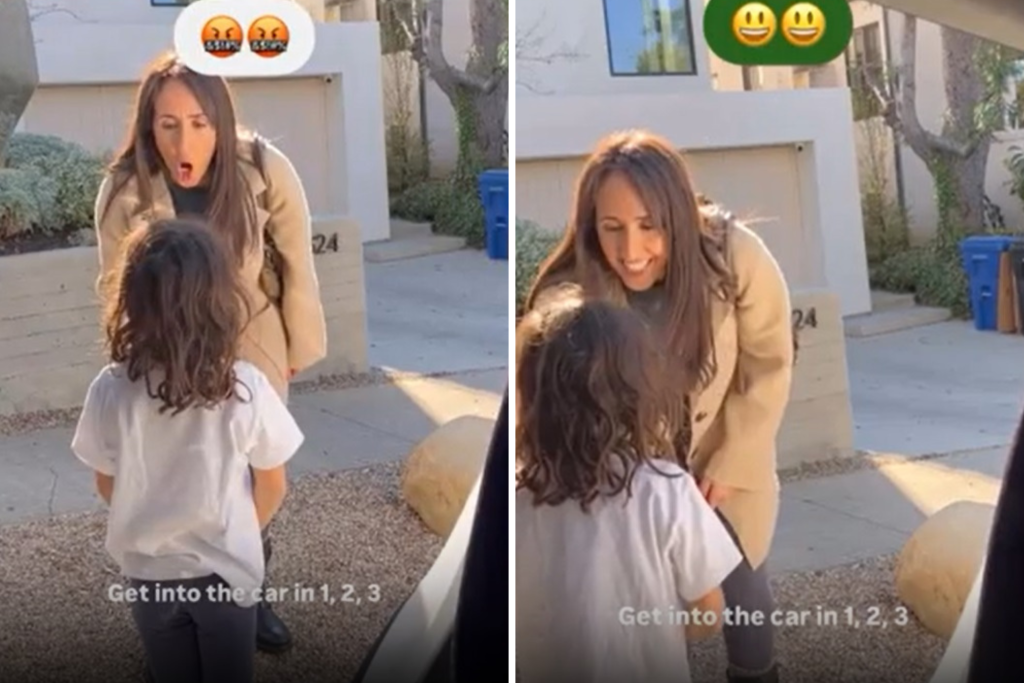Shirin Galili, a parenting educator and former teacher, has garnered significant attention on social media for her innovative approach to communicating with children. Her central message revolves around the transformative power of tone of voice and body language in parent-child interactions. Galili argues that parents can significantly improve communication and cooperation by adopting a calmer, more empathetic demeanor, fostering a learning environment where children are receptive and willing to comply, not out of fear or obligation, but out of genuine understanding and respect. This approach contrasts sharply with the traditional, often authoritarian, style of parenting that relies on commands and reprimands.
Galili’s viral video demonstrates this principle in action. She repeats common parental instructions using two distinct approaches. The first embodies the typical hurried, directive tone, often laced with frustration, that many parents resort to when managing their children’s behavior. The second approach showcases a gentler, more understanding tone, coupled with supportive body language. The contrast is stark, highlighting how even subtle shifts in communication can profoundly impact a child’s response. Her method emphasizes connection and understanding, creating a space where children feel heard and respected, thus increasing their willingness to cooperate.
The core of Galili’s philosophy rests on the belief that every interaction with a child is a teaching opportunity. Instead of viewing disciplinary moments as power struggles, she encourages parents to see them as chances to instill valuable life skills. By responding with empathy and understanding, parents model emotional regulation and effective communication, equipping their children with the tools to navigate their own emotions and interactions. This proactive approach cultivates a positive and nurturing environment where children learn through positive reinforcement rather than fear of reprisal.
Galili’s message resonated deeply with many parents online, sparking a lively discussion about the challenges of maintaining composure in demanding parenting situations. Many comments reflected the common experience of resorting to shouting or stricter measures when gentler approaches seem ineffective. This feeling of exasperation, a common sentiment among parents, underscores the difficulty of consistently applying positive parenting techniques in the face of everyday pressures and challenges. Galili’s method challenges parents to reframe their perspective, viewing these challenges not as failures but as opportunities for growth and learning, both for themselves and their children.
Addressing the concerns of parents who struggle to maintain calm communication, particularly when faced with repeated defiance, Galili offers practical advice. She emphasizes the importance of adapting strategies if the initial attempts at gentle communication fail. Instead of resorting to anger or repeating the same ineffective approach, she suggests parents try different tactics. These include physical proximity, making eye contact to ensure the child is engaged, and phrasing requests specifically rather than issuing general commands. These adjustments personalize the interaction, ensuring the child feels acknowledged and understood, potentially diffusing resistance and encouraging cooperation.
Galili’s approach underscores the importance of parental self-awareness and patience. Parenting, she emphasizes, is not just about managing children’s behavior; it’s also a journey of self-growth and development for the parent. It requires continuous learning, adaptation, and a willingness to explore alternative strategies. By modeling emotional regulation and thoughtful communication, parents empower their children to develop these crucial life skills, fostering a positive feedback loop where both parent and child grow and learn together. This transformative approach to parenting shifts the focus from control and obedience to connection and understanding, creating a more harmonious and fulfilling family dynamic. It empowers parents to move beyond the cycle of repeated commands and frustrated reactions, fostering a more peaceful and effective approach to raising children.










